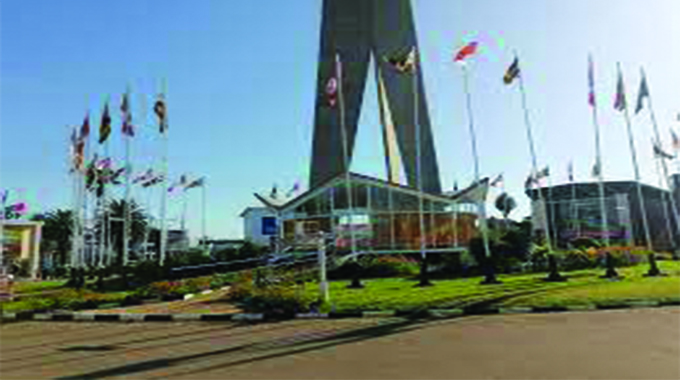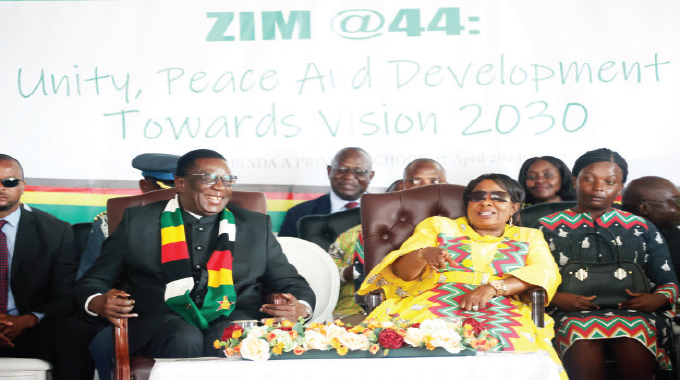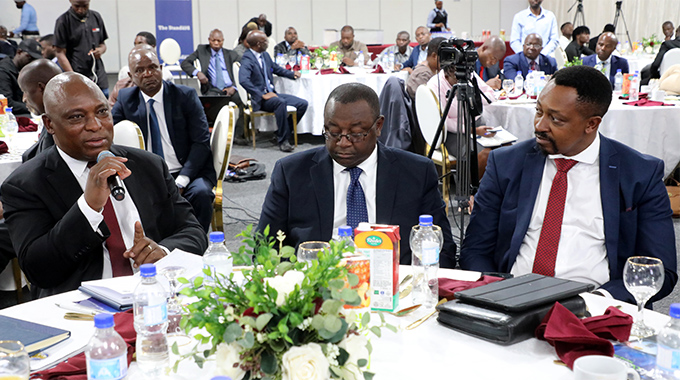WATCH: Journalism before and after independence, Mpofu bares it all

Bongani Ndlovu, [email protected]
SOON after the attainment of independence in April 1980, Stephen Mpofu was hired as a senior reporter at the Herald in Harare and quickly realised something was amiss about how the newsroom operated.
The voice of the black majority that had won the protracted war and gained independence was not in the media.
The focus was still on what the colonists enjoyed, what they were dismayed about, their needs and wants without the consideration of the issues that affected the blacks.
This prompted Mpofu to boldly approach his news editor at the time and suggest that he covers black people’s issues, especially in the townships of Chitungwiza and Seke.
Mpofu was the first black News Editor at the Herald in 1981 and then Assistant Editor from 1981 to 1987, when he became Acting Editor of the Sunday Mail before taking over the following year.
Mpofu then took over as the Chronicle Editor in 1989 and captained the daily, until his retirement in 2001.
This week, a Chronicle news crew visited Mpofu at his house ,in Bulawayo’s Killarney suburb. He was in a jovial mood as he welcomed the news crew, which was ushered in by his two grandchildren to the dining room, where a beaming Mpofu was seated.
While he has lost his sight because of glaucoma but this has not affected his love for journalism as he recalled how the newsroom was when he walked into Herald house, after 17 years of working in Zambia.
“I actually initiated the coverage of Chitungwiza and Seke because they were neglected as they were black townships, which did not get much coverage from white reporters.
“I remember very well that I suggested to cover the two and there were a lot of things to be covered there,” said Mpofu.

A proud moment for Mr Stephen Mpofu (centre), the Editor of The Chronicle, as he savours the first batch of copies of his new novel, Zambezi Waters Run Still, at launching ceremony in 1996. He is flanked by a representative of the publishers, Mrs Susan McMillan (left) and Dr Yvonne Vera, a renowned local writer.
“I covered what people wanted, shops, schools, clinics and so forth, how people were living and what they needed. Whites would not go there and talk to people and in the first place the people were obviously reluctant to talk to them. They were however free to talk to me, a fellow black man and say what they needed and so forth.”
When he walked into the doors of Herald House, Mpofu said the environment just after independence was hostile, there was a “cold war” between the white and black journalists, both sides were suspicious of each other, not trusting one another and the whites looked down upon black scribes.
“The environment was hostile in the sense that the whites who held superior positions were afraid of being supplanted because they knew, with time there would be no jobs for them. And, so, we had to be brave, we knew why we were employed there,” said Mpofu.
“We had to be brave because we knew how oppressive whites were and so, when we were promoted to higher positions, we knew we could not afford to fail because a revolution had been fought to remove oppression against blacks.
“So, there was virtual war, cold war if you like, between black journalists and white seniors there.”
Mpofu said some would cynically disobey him while others left for South Africa, where they felt “comfortable” because Apartheid was in control. These white journalists could not fathom working with, let alone under a black man.
“They disrespected you simply because you were black. As they were used to the system of oppressing blacks. They disobeyed you in a very subtle way. Most of them left and went to South Africa because before independence our newspapers were owned by Argus Printing and Public Company from South Africa where Apartheid was at its height, so, they felt comfortable there,” said Mpofu.
Possibly, this behaviour by whites was not abnormal as it was ingrained in their DNA as they regarded blacks as lesser humans, viewing the journalist profession as a preserve of their race.
In his book, “Creatures at the Top”, Mpofu chronicles his utter shock and dismay after being told to his face by a Bishop Albrekston of the Evangelical Lutheran Church that journalism “was a career for white people”.
In the book, Mpofu wrote that in 1961 he could not wait to tell the Bishop, who he described as a quiet looking spiritual father, the good news that he had been accepted into Africa’s only journalism school, the Africa Literacy and Writing Centre (later to change to Africa Literature Centre) in Kitwe, Northern Rhodesia (present day Zambia).
Mpofu in his book says he questioned whether the church stood for what he called “rampant white racism” or was it just the Bishop’s opinion or preferences that the journalism profession was a preserve for white people.
He had earlier on applied to be taught journalism after seeing an advert in the Drum Magazine that he had picked up while killing time with his friends on a Sunday afternoon, at the Bulawayo Main Railway Station, in June 1961.
At the time, Mpofu was working at Sentex Weaving Mills as a drawer, making designs on towels. Mpofu said he was excited as he saw himself contributing to the church’s magazine, Chiedza to “improve its quality and increase its circulation.”
Away from the disappointment of the Bishop’s rebuff, Mpofu nearly failed to travel to Zambia for his journalism training because he had failed to get sponsorship to enrol. It was his father, who later raised money to pay for his course by selling grain and chickens, while Mpofu from his measly wages saved enough just to meet his travelling expenses and his upkeep in Zambia.

Stephen Mpofu
This is where he saw the possibilities of working in a free country as a black man. What he calls the Class of 63, at the Africa Literacy and Writing Centre, he rubbed shoulders with journalists from free countries such as Ghana, Nigeria, Uganda, Tanzania and Zaire (now the Democratic Republic of Congo).
This was the newsroom that he wanted, this was the life he had envisaged, free from being looked down upon in his own country.
Looking back, Mpofu believes he was privileged to have worked in Zambia during a time that the country attained its independence, as back home there was little or no opportunity.
“I wanted to come back home, but when Ian Smith declared UDI, I stayed on. The white man had grown roots in the country and being a journalist was a white collar job. I stayed in Zambia for 17 years, working there and seeing and feeling how a Government under majority rule worked. It was liberating and it was something that I wanted for my country,” said Mpofu.
He said all the while he was following the rise of the nationalist parties and movements in Rhodesia and in particular when Zanu was formed in Gweru, under the leadership of the late Reverend Ndabaningi Sithole as president and the late Cde Robert Mugabe as secretary general.











Comments